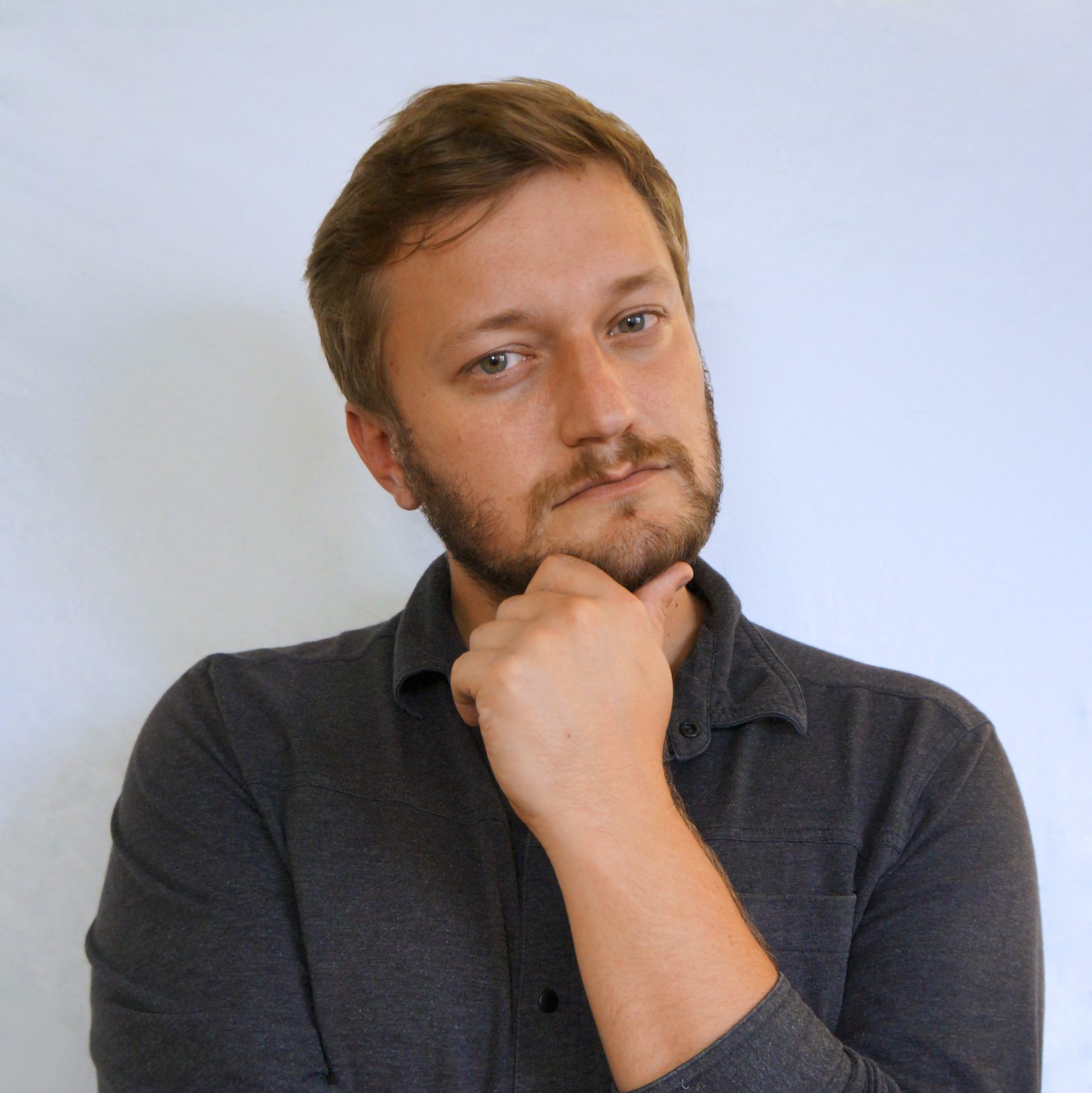A Provoking Look at the Soul of Kingston
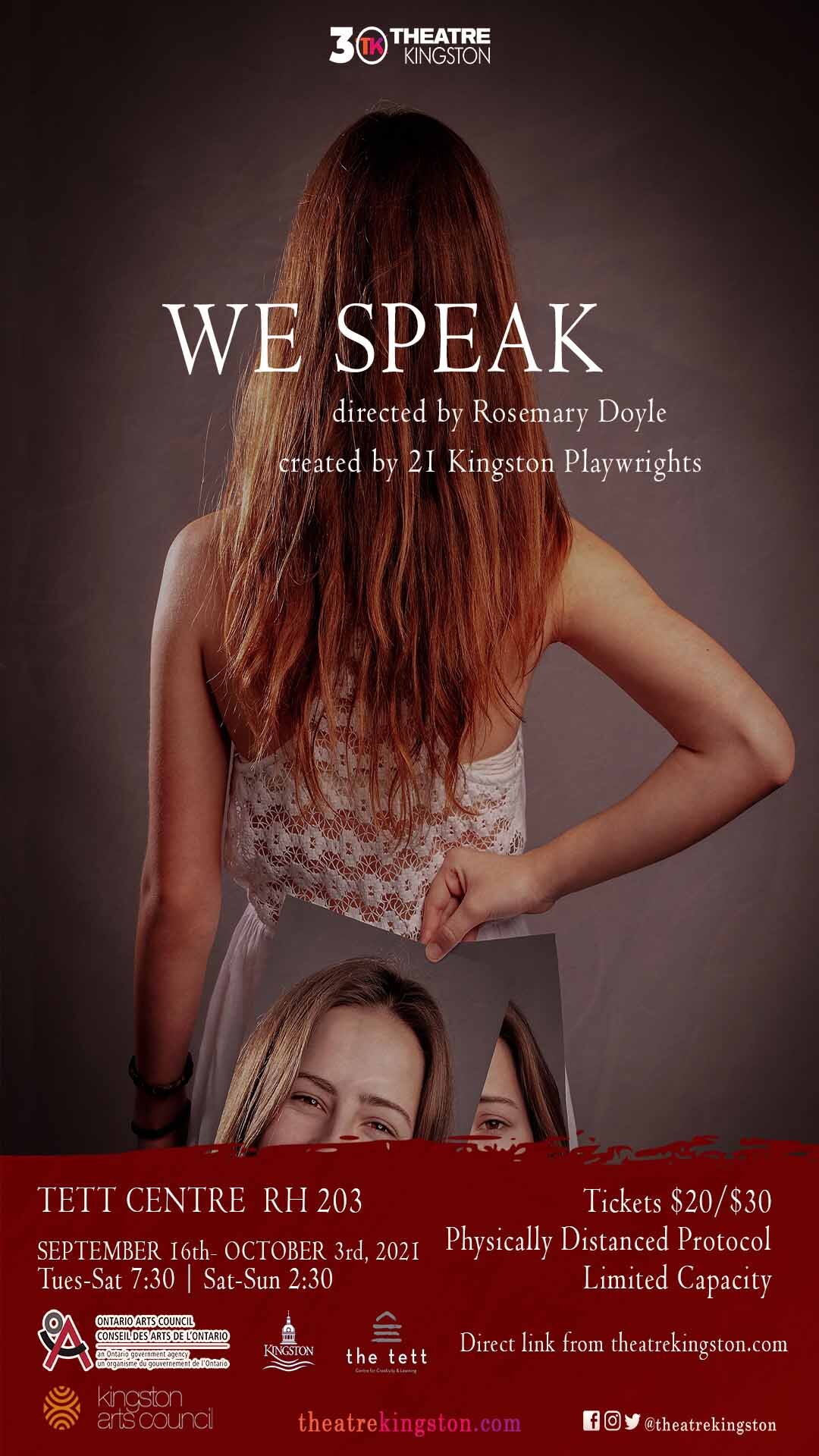
I’ve come to realize that while I have spent several summers and the last year here, I am clearly not (yet) a Kingstonian.
Why do I say this? Over the course of (length of show), I walked into an oral history of old locations in the downtown core, superstitions of the citizens regarding ghosts, and odd decoration choices like the carpets at The Toucan, and realized how unaware I was of this city’s history.
We Speak is a collection of monologues produced by Theatre Kingston and curated by Kelly Dear and director Rosemary Doyle. The interwoven narratives feature monologues written by 21 different members of the Kingston community in an attempt to capture the spirit of what it means to live in Kingston. With a cast of 8 ( Tim Fort, Johnnie Jordan, and Abby Wolfe, Ryan Clemont, Anne-Sophie Grenier, Helen Bretzke, and Selina Chiarelli, We Speak has great promise as it continues developing.
Based on The Search for Signs of Intelligent Life in the Universe by Jane Wagner, We Speak does differ from its inspiration in some extreme ways. While Wagner’s production was a dynamic, one-woman, powerhouse performance, Doyle and Dear curated a large ensemble to portray each of the unique stories— and goodness, these are unique! The individuality in this show slapped me in the face when I became emotionally invested in a chicken. Yes, a chicken’s perspective on life in Kingston resonated with me, which either represents how strong the writing can be in this play or, conversely, my own lack of depth (readers choice!)
Spanning across, and becoming the entire base of the stage, is a blueprint map of Kingston, a simple yet powerful way to geolocate the importance of this piece. What was impressive was the self awareness of the cast and director about the land in which they were performing on.
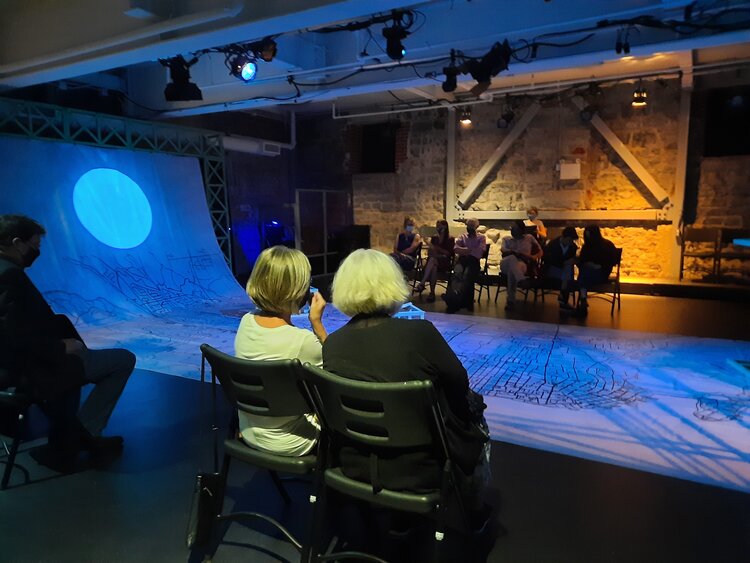
A meticulously written land acknowledgment that detailed the history of oppression in Kingston was posted outside the theatre. This was refreshing to read, but the lack of verbal recognition unfortunately detracts from the strong attempt at reconciliation. This is added to by one of the opening lines of the play (though done satirically) being performed by an older white academic who subtly comments on the frustration of having to do land acknowledgements in the first place. It is imperative to note that this is clearly done as a commentary of this misguided political opinion and that the cast/crew understand the issues with this perspective.
Viciously stamping across the map, Fort plants his box onstage like a flag on a hill. This sense of land tromping was emulated in many of the other actors’ movements, creating a cohesive commentary on the history of this land. Unfortunately, the intentionality in this direction is lost in the latter half of the performance with no functional reason as to why. The actors sometimes maintained this choice throughout the piece, but this brutality in blocking became complacent as the show pressed forward and actors slipped into more comfortable forms of movement. This is a small issue though when juxtaposed with the performances themselves.
I am always keen to point out excellent technique, but I want to take the time to note generosity of spirit and true vulnerability on the stage—and Wolfe provided both in spades. Each time she entered the stage, I knew I was in for a moving moment. From sharing regrets regarding marital partners, resentment of her current choices, and a loss of hope for the future, Wolfe was the grounding heart of this piece and allowed the other actors a breath of levity in their performances.
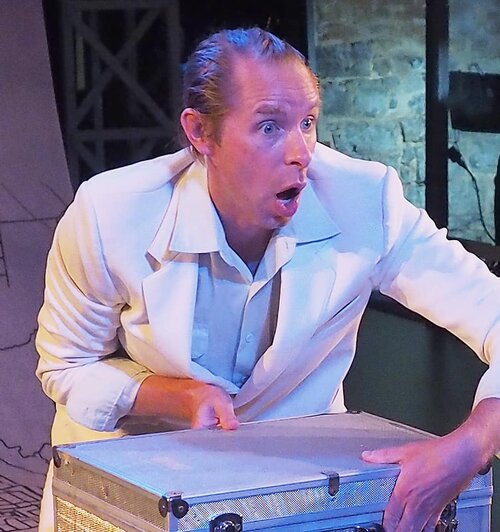
On the other hand, Ryan Clemont, excelled as the aforementioned chicken, but failed to keep me invested as a high energy salesman selling the ideal vision of Kingston. And while Clemont’s monologue was reminiscent of Lucky’s from Waiting for Godot (forcefully quick and unbreathable tampo) the matter of execution is the heart of the issue. If an actor begins at their emotional and technical peak, they allow themselves no room to grow. Refined, this piece could be one of, if not, the strongest moment in the play.
Many people felt seen and heard in this story, but what does it mean to live in a city where you are seen, but rarely interacted with? Reflecting our unhoused populations, Jordan portrays a homeless man bitterly trying to get the attention of the surrounding people, but fails time and time again. The resentment in his characterization was palpable as the city’s housing crisis dominated the stage for a brief moment in this otherwise humorous jaunt. Rage is a difficult emotion to manifest as a performer, but Jordan captured the trauma of constant invalidation brilliantly.
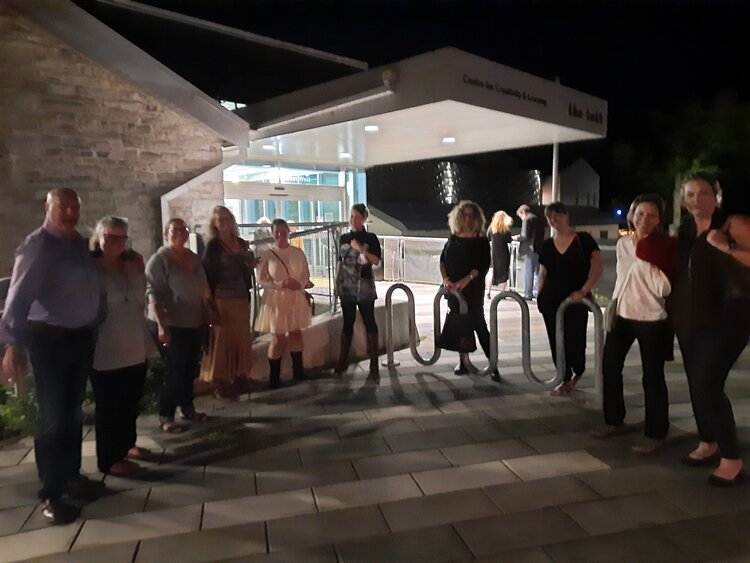
During intermission, I learned that few audience members knew each other prior to the performance. As they all stood socially distanced, they laughed and shared their excitement of having their stories told on stage in a genuine and brutally honest fashion. This performance allowed me a momentary glimpse at what Kingston may be—a great meeting place. This invisible thread of connection was drawn between us all and I was fortunate to be a part of that connection.
This is a must-see performance for any long time citizen of Kingston. It admirably represents the stories of this city, while also recognizing and aiming to reconcile with its oppressive past and present. With a wonderfully blended cast from different walks of life, it sincerely asks us to consider what it is that makes Kingston home to so many. We Speak could be an excellent staple of Kingston culture— who knows, maybe next year we will get We Speak 2: Electric Boogaloo!
Theatre Kingston’s We Speak runs from September 16-October 3 the Tett Centre. Click here for tickets and more information.
